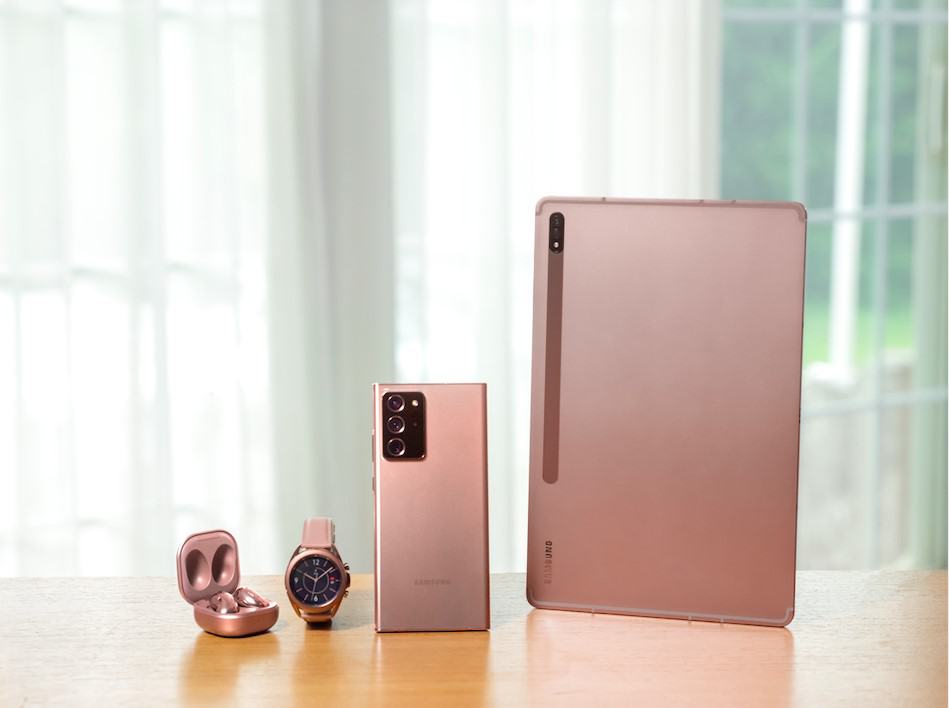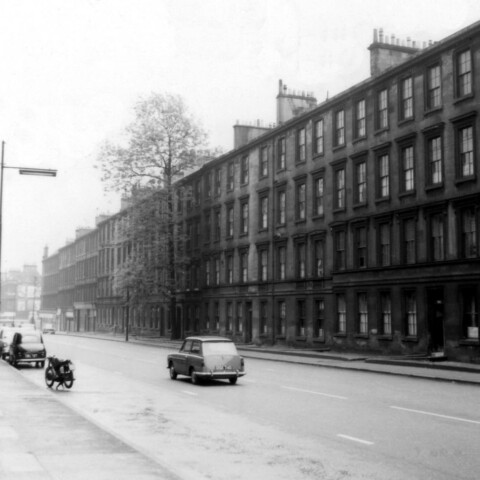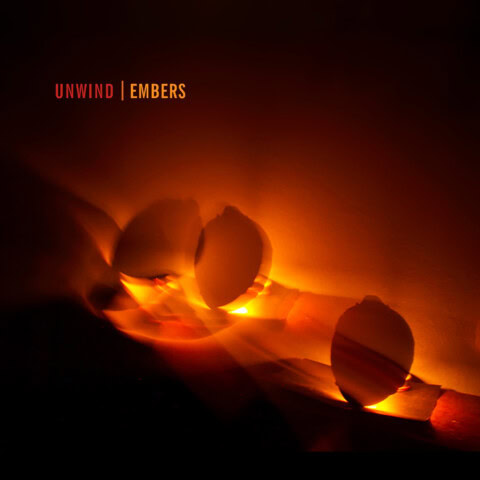Caitlin Smith is a singer sublime, celebrated vocal coach and an underrated songwriter. GARY STEEL quizzes her in the great Witchdoctor Q&A.
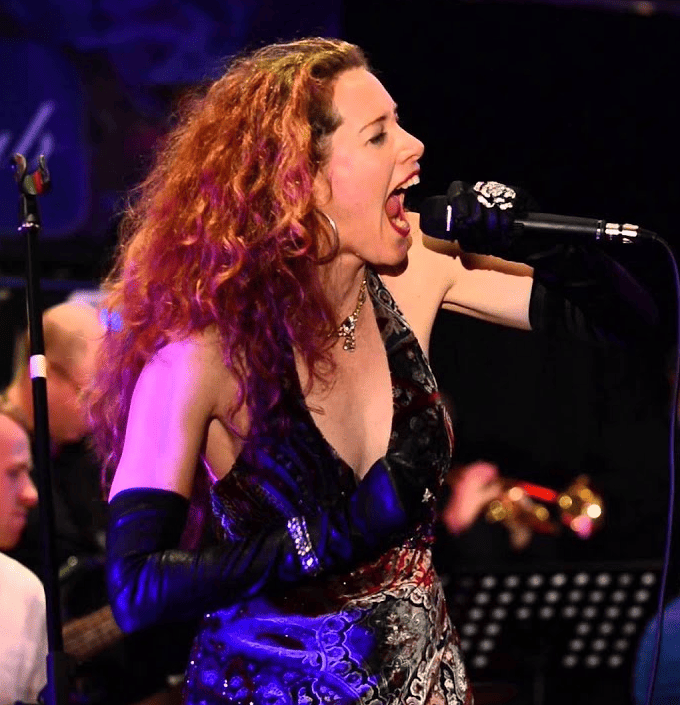
For too long Caitlin Smith has been a musical wet dream for connoisseurs while being practically invisible to the general public. For 11 long years her second album has waited for some fan love, but next week all 14 songs of You Have Reached Your Destination are finally unleashed into the public domain. [Note: The album release has been delayed even further by Auckland’s Covid-19 scare. The new release date is November 4.]
Why the wait? Well, you can read about all that below in our no-holds-barred Q&A with Caitlin, but we’ve got a few things to get off our chest first. When Caitlin performs she is the song, whether it’s one of her own or a someone else’s that she’s making her own by sheer force of personality. As if her vocal skills aren’t spellbinding enough, she’s not simply a technician but someone whose human honesty and essential sensuality oozes through every line.
We challenge any non-converts to read the interview below, and to listen to the album. What you’ll hear is someone whose expression through song isn’t tainted by industry expectations. It’s something to behold, and it’s real.
I’ve eschewed the usual biographical details here, but for those wanting that kind of stuff, they’re urged to check out her website here.
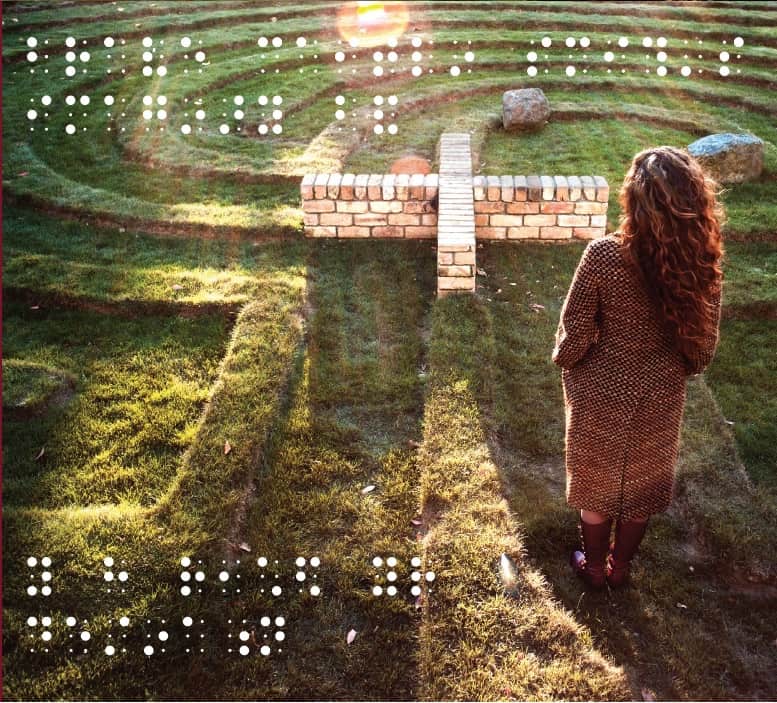
Gary Steel – Back in 2014, you said You Have Reached Your Destination “should be out in a month or so”. What happened?
Caitlin Smith – I wish I knew how to answer that. I secured Creative NZ finding in 2007, the album was recorded in 2009 and then… given that I’m not managed and struggle greatly with self-belief… everything and everyone else got in the way. Individuals close to me said “it’ll never come out” and “you can’t do that, it’s a stupid idea”. I tend to prioritise others’ needs and opinions over my own. I’m overly and destructively empathic to the extent that I feel others’ pain over and above my own (this proves particularly difficult in intimate relationships). I’ve since come to realise that the whole recording and post-production processes gave me PTSD. I’m only now just realising what I’ve been dealing with. About bloody time though, aye?
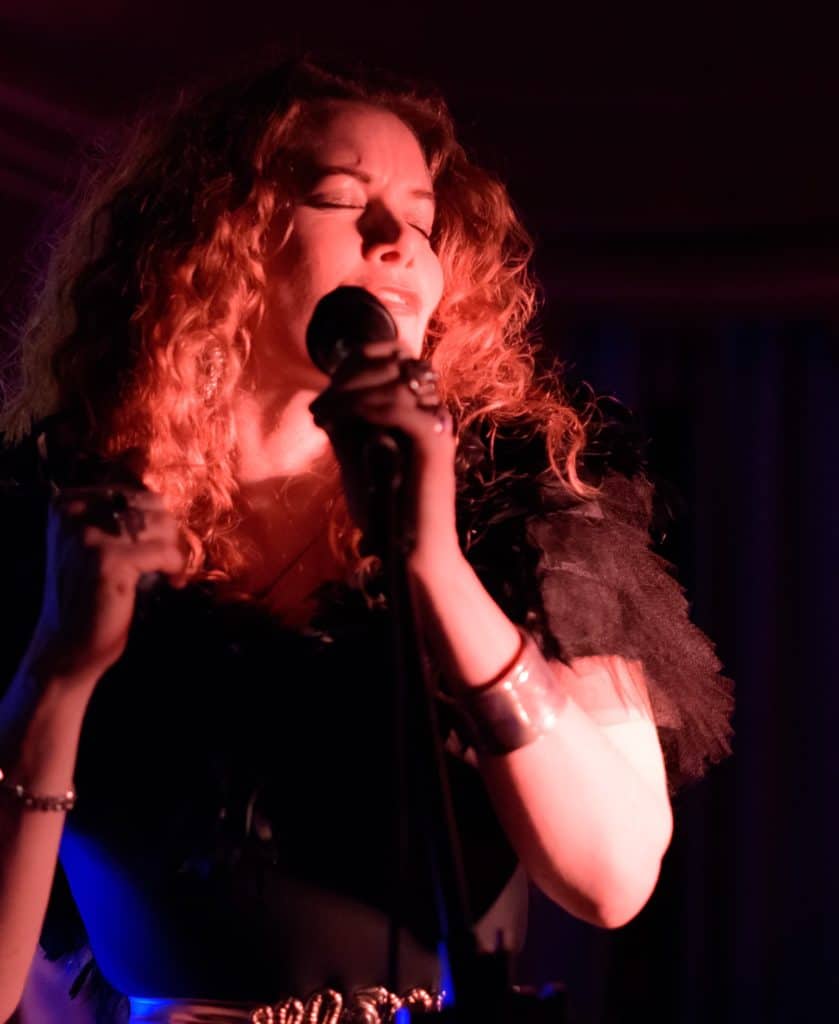
Gary – Having not heard the album, can you tell me a little about it: about its gestation: the songs, the musicians, etc? And the cover, too!
Caitlin – The musicians are a dream team of goodness: Dixon Nacey (guitars), Janek ‘Buck’ Croydon (pedal and lap steel guitars), Alan Brown (Hammond C3, organ), Kevin Fields (piano/keys), Aaron Coddel (bass), Rebecca Le Harle, Matu Ngaropo, Callie Blood (backing vocals), Finn Scholes (trumpet), Oliver Emmett (trombone) Chris O’Connor, Nick Gaffaney, Steve Thomas (drums), John Bell (vibes), Nigel Gavin (slide guitar). I’m on voice and piano on some tracks… there’s even some conga from Carter Collins (from Tim Buckley’s Trio).
I recorded my footsteps in places where I’d written the songs and these segue between tracks into a seamless sonic continuum. It is my hope that folks will try to place themselves in each location and, before referencing the accompanying photographs, hear where exactly they are. The cover revolves around the concept and photography of labyrinths (I explain this in the liner notes). I intend the album to encourage ‘deep listening’. Teaching people how to listen (as a legally blind woman) is my mission in this life.
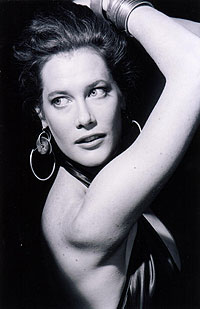
The songs are all my own, 14 in all. I’m not a prolific songwriter by any means. They were written between 2005 and 2009. The subject material is my usual: love and loss, addiction (I got clean and sober in 2008), co-dependency, relationships, jealousy, forgiveness and spiritual faith.
It has Braille on the cover and a tactile labyrinth that you can trace with your fingertips inside the gatefold cover. There’s a double-sided poster of the lyrics with photos relating to the locations where the footsteps were recorded and another insert of my poems. I’m way more prolific writing poetry than songs.
We’ve been through quite the journey trying to get the Braille right. It’s not cheap. I don’t even care that no-one is able to play CDs anymore. Go find a mate’s car stereo to play it on… buy a CD player from Cash Converters if you must!
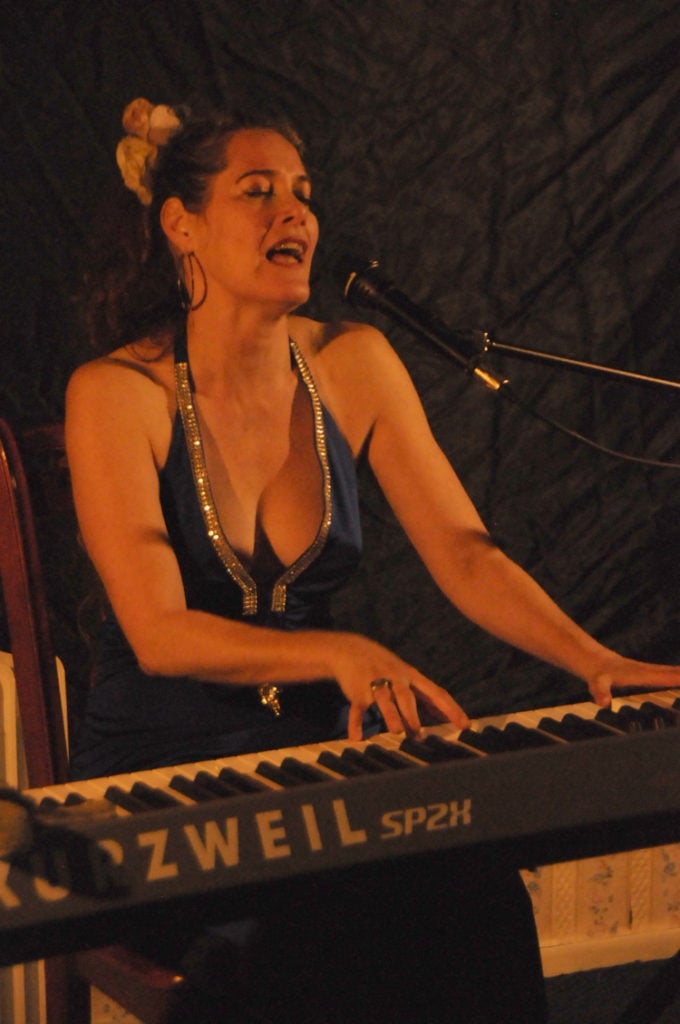
Gary – You said it was recorded 11 years ago. Have you changed in that time? Have your songs? Has your voice? Do you still feel like it’s you on the record?
Caitlin – Oh, hell yes! I’ve been through the wringer! Back when it was recorded, the studio’s presumption was that I would overdub the vocals at a later date (as is the pop/rock practice). However, I’m more ‘jazz’ and recorded everyone at the same time, in the same room wherever possible. The sound of my voice on the album is raw and authentic. It is what it is: a record. It certainly is me… Ain’t nobody else sounds like that! I sing the songs very differently now. They have evolved due to constant performance. I must have performed them literally thousands of times since the date of recording. Thousands!
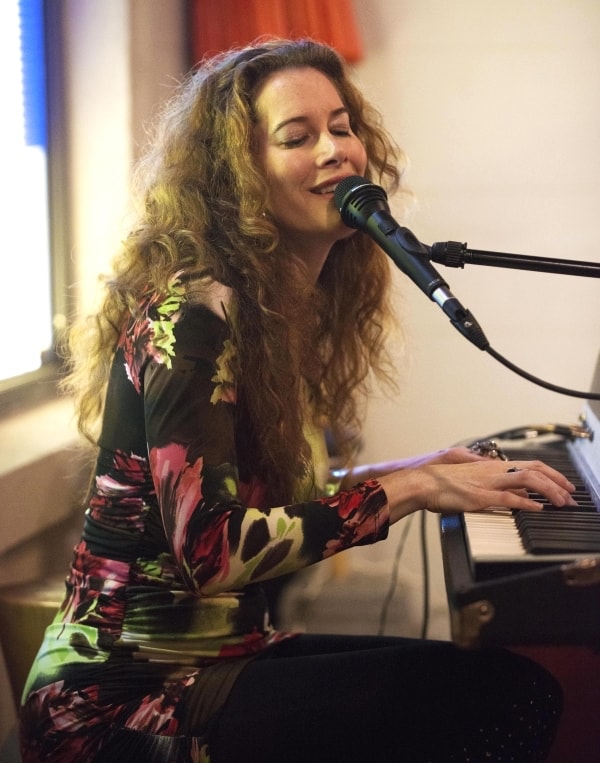
Gary – I read somewhere that you’ve always put your vocal coaching first and your own creative life second. (Not to imply that there isn’t creativity in teaching…) Have you put Caitlin “the artist” second for financial reasons only, or is there some other reason?
Caitlin – My whole reason for being is ‘service’. I’m a pretty classic Virgo in that regard. I was brought up to believe that performing was ‘showing off’, egoic, big-headed and that you would be ‘full of yourself’. Teaching, on the other hand, is so fulfilling and rewarding. It’s magic to me (not that performing isn’t). But I really don’t need or crave applause and flattery. In actual fact, I cringe in the lime-light. I can’t see an audience anyhoo due to my sight condition.
I write about a lot of issues in my NZ Musician magazine column called Finding Your Voice. One of these relates to a phenomenon called The Jonah Complex, wherein you shy away from leadership or high-profile roles. As the great Jesse Winchester wrote, “I beg a gift I dare not claim”. Ironically, I have to find my own voice and practice what I preach to my students…. Applying this same advice to myself. I believe my journey is representative of a great many songwriters: we are by nature more introverted and shy as opposed to the more extroverted male Rock-God archetype. Women in music tend to just disappear (if they were even seen or heard in the first place!) Furthermore, blind people as a whole have received negative attention for being different and tend towards feeling invisible and ‘in the way’. For all these reasons, and more, I’ve tended to hang in the shadows. I realise that now is the time to stand up, speak out, find my voice and use it…. Ulp!
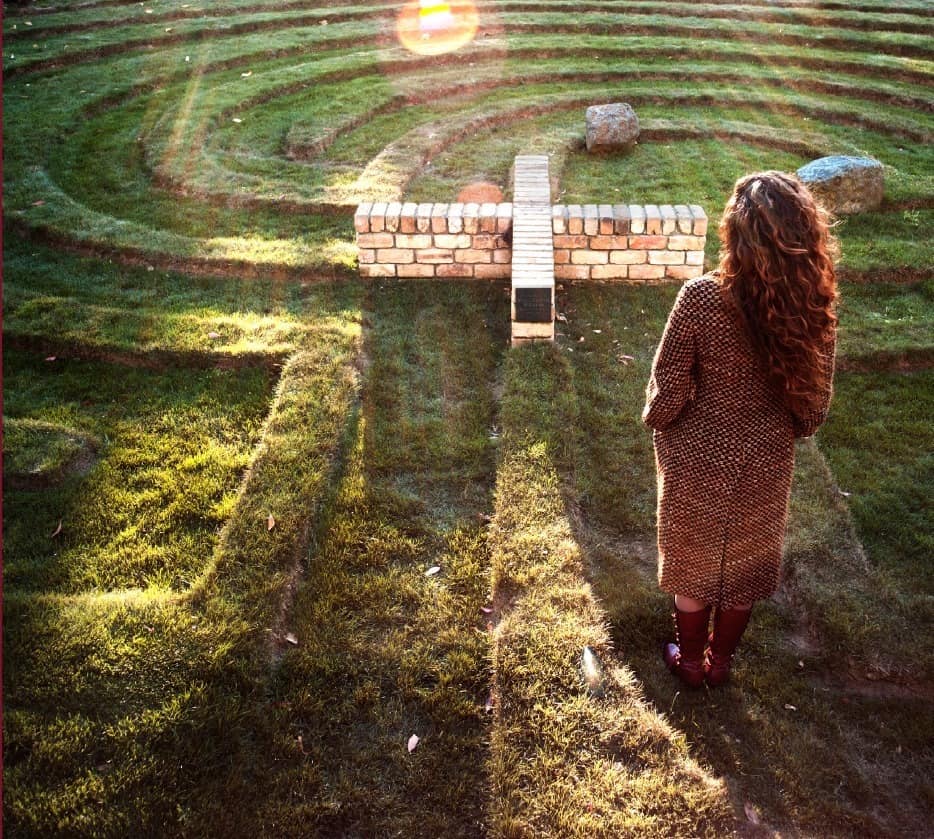
Gary – The reason I ask, of course, is because you’ve clearly got all the attributes (and more) of our more well-known artists/singers/songwriters. Speaking of which, if you could only sing, or write, or be a creative entity in general, which would you go for?
Caitlin – Being a creative entity means writing and singing. I think these things are inseparable. Aren’t they? I believe my teaching fuels and informs my performing and performance demonstrates and provides an outlet for the tools and techniques that I teach. Writing is my lifeblood. I couldn’t exist without it. (NB: what I refer to here is a daily writing practice rather than complete songs or poems per se).
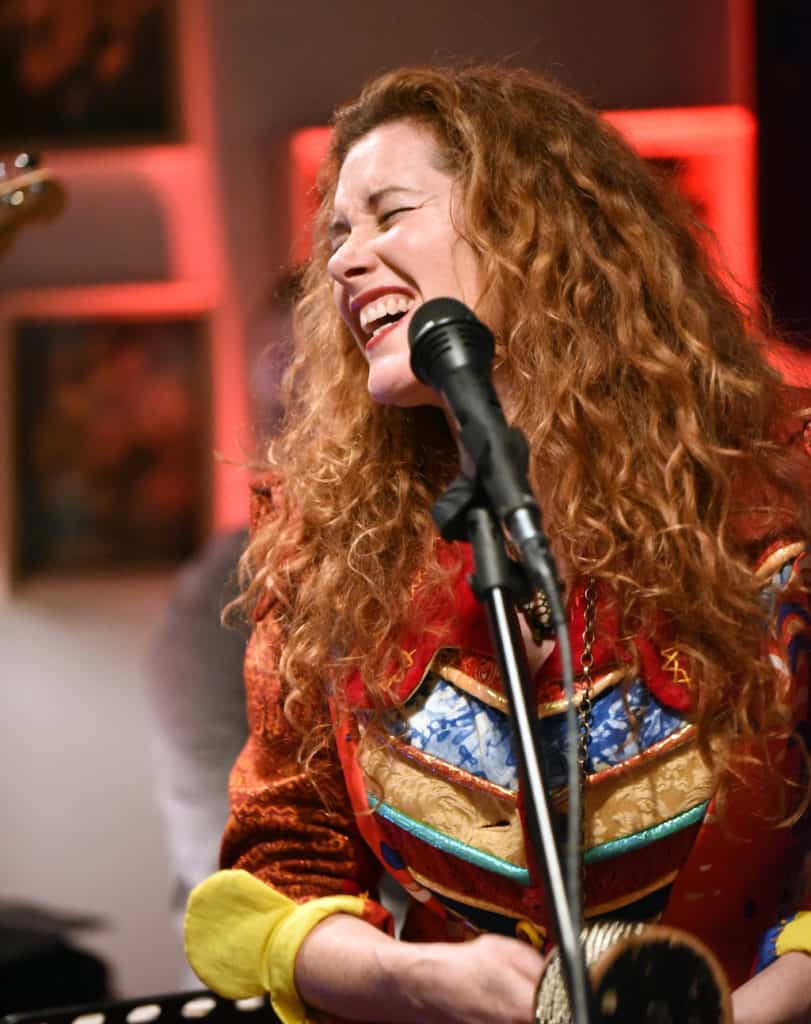
Gary – Listening to you live, you really pour your heart and soul (and oodles of technique) into what you’re doing. There’s an intensity and edginess I get from you that I hear in Joni Mitchell, Janis Joplin (in a very different way) and both Buckleys (Jeff and Tim). And risk-taking. I find this interesting given that most singers of your calibre settle for being jazz stylists (think of Holly Cole or all those technically perfect singers that record for audiophile labels like Denon). It’s a long-winded question (sorry) but are you driven towards that kind of vocal intensity?
Caitlin – I’m just being who I am. That may indicate that I’m edgy and intense… LOL. I definitely like to play and experiment, but that could be because I’m from a punk background. I’m about as far away as you could possibly get from ‘technically perfect’. I often refer to myself as ‘feral’ or ‘rough as guts’. I also adore gospel music as I really do feel as if I’m channelling as I sing. I’ve made an offer to the Ancestors: if they feel like having a warble when I’m doing my mahi, they’re more than welcome to use my body as a conduit. I certainly am not consciously trying to be or sound like anyone else (even though Joni Mitchell is my spiritual mother!) Funnily enough, women are said to have four octaves in their pitch compass (range). I want to use whatever I’ve got to do justice to the song: Whatever it wants me to do, I’ll do it.
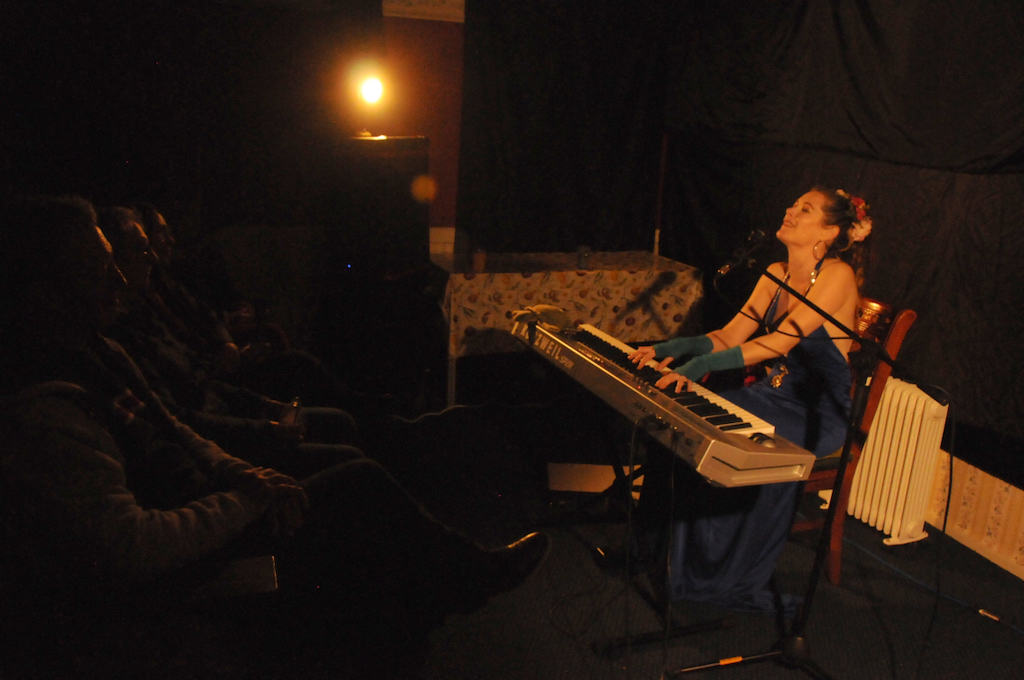
Gary – I’m presuming that the “new” album is all original material. Going by the original songs you played the other night, you’re an absolutely world-class writer who (unlike so many) knows how to construct a song with all the “correct” lyrical and melodic elements; and yet, unlike the pop charts, there’s nothing cynical about your songs. How long have you been writing and are you prolific? Have you ever participated in something like those Songhubs conferences or sent your songs to publishers for consideration?
Caitlin – Yup, all OG. I teach singing and songwriting mooshed together, so I’m really passionate about songs transforming and being as nutritious as possible. I‘m committed to only performing songs I’m prepared to ‘cage fight to the death for’. This goes for originals as well as covers. My life was saved by songs that I simply needed to hear at that time. I believe in songs as prayers, spells, stories of import, beacons, educators, karanga, medicine and expression where words or sound alone would fail. I’m most certainly not prolific.
Re: Songhubs… I suspect I’m too old and not hip enough. Also, APRA is focused exclusively on the industry and the commerce of music. The latter has nothing to do with art. I’m part of a musical community, not the music industry.
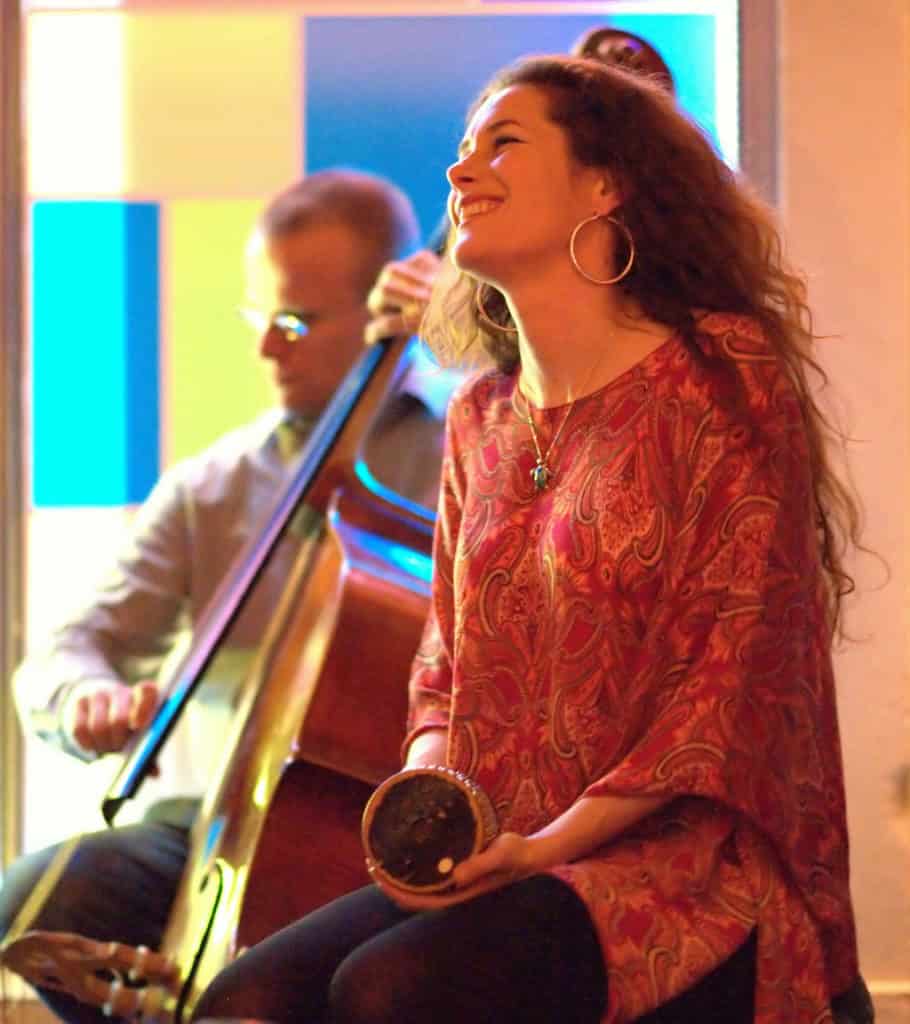
Gary – Who are your inspirations: your favourite singers, and writers?
Caitlin – Joni Mitchell and Leonard Cohen, Joan as Policewoman, Stevie Wonder, Gil Scott Heron, Sister Rosetta Tharpe, Prince, Guy Clark, John Prine, Paul Brady, Declan O’Rourke, Jesca Hoop, Ane Brun, Catherine Feeny, Bjork, Elbow, Cassandra Wilson, The Maes, Lake Street Dive, Anthonie Tonnon, Mahinarangi Tocker, The All Seeing Hand, Candi Staton, Margie Joseph, Carl Panuzzo, Paul Kelly, Paul Williams, Bowie, Little Feat, Buffy Saint Marie, Nick Lowe, Jim Lauderdale, Jason Isbell, Joan Armatrading, Judee Sill, Saint Saviour, Sylvie Lewis, Hem, Sia, I’m loving on Liz Stokes and The Beths’ latest album right now… and on and on and on. Far too many to list here. I’m very inspired by poets too: love me some Billy Collins, Rumi, Miriam Larsen Barr, Larry Beckett.
Gary – We’ve got such a dull mainstream ‘vocabulary’ right now when it comes to singing, and I guess technique and ability has to a large degree gone out the window in some genres with modern production. By contrast, you seem to revel in what the voice can do, where it can go, and where it can take you. I know you’ve struck some problems with nodes over time, but in general, are you happy with the way your voice evolves over time? You were hitting some wonderful low notes the other night to complement the high ones.
Caitlin – Thanks for noticing … LOL. I rock and roll through this life as the love-driven benevolent Universe guides me into and through situations where I have to learn and evolve, or stay stuck in suffering. As regards nodules: I got them most recently from screaming in attempts to be heard in a toxic relationship. It meant that I was diagnosed and mistreated by the current hospital system. The last time I had voice therapy was in 1992. Things have radically changed and these days, they’re not interested in getting rid of the nodules, rather “managing consequences”. I found this to be unconscionable! I see all the experiences I go through as catalysts to greater understanding. I have many columns in the pipeline: the Chakras as related to voice, getting rid of nodules, how to deal with self-silencing and being silenced, voice loss on account of not being heard (this relates to the BLM movement and many other instances of individuals and groups trying to speak up for themselves and be ‘heard’ by elites and systems that simply aren’t listening).
Gary – How important is vibrato in singing and how would you go about teaching it? It’s always intrigued me, as some cultures don’t seem to employ it at all, while in the West we’ve got everything from the pretty trilling of a young Marianne Faithfull or Mary Hopkin to the ‘extended’ vibrato of Joni Mitchell, for instance (particularly on songs like ‘Woodstock’ and ‘Rainy Night House’ on the live Miles Of Aisles album). Not to mention the many jazz singers who use it as a technique.
Caitlin -I don’t teach it – it naturally occurs. I think of vibrato as a very shy friend. She’ll come in when she’s good and ready ‘in her own time’, but whatever you do… don’t draw attention to her or make her self conscious. She’ll just clam-up and run away! It’s fun to play with different types, rates and speeds of vibrato AND straight tone. It literally translates as ‘vibrancy’ (as in colour) rather than vibration. As you say, it goes through phases and trends like fashion with different genres and individual artists being immensely influential.
Gary – Does your audience expect you to interpret other people’s songs? How do you choose and figure out what to do with a song? Would you perform all your own material if you could?
Caitlin – Audience? I have an audience?… Just kidding. I don’t know what they expect. Certainly, the ‘party faithful’ come to a gig knowing that I’ll mix it up with cover, original, cover, original so that people don’t get ‘judgy’. I’d love to just play my originals, but I love the covers I do so much and I’m constantly adding to them at a way speedier pace than I write new songs.
I think songs sing you rather than the other way round. Putting my spin on a song is a wonderfully magical and rewarding process. I’ve just been really getting inside Cohen’s ‘Bird On A Wire’. It’s like starting up a new relationship and you’re constantly discovering and finding out more and more about this beautiful new creature in your life.
Gary – Will you be performing around NZ in support of You Have Reached Your Destination? Is there another one in the oven and will it be a quicker birth, do you think?
Caitlin – Yes. I was due to go on a nationwide tour with the Te Reo duo Aro in April this year, with Arts on Tour. Well, as you know, this little thing called COVID-19 happened. So, I’m on tour for the entire month of May 2021.
I recorded an album with the Auckland Jazz Orchestra last year (when I still had nodules … so it sounds a lot like Mavis Staples!) We hope to release that later this year. And yes, I intend to start up a Boosted campaign with the launch of You Have Reached Your Destination to fund the recording of the next CD. I have 14 new songs that would love to be recorded. We’ll see how quickly we can turn that baby around. It would be my dream to be able to sell three CDs of originals on the May 2021 Arts on Tuatua: Aurere, You Have Reached Your Destination and the newbie.
- Caitlin Smith’s You Have Reached Your Destination album launch gig was due to take place on Wednesday, August 12 – the day the Covid-19 alert level in Auckland was raised to 3! Consequently, the album will now be released to coincide with the new launch concert at Anthology on K Road, on November 4. The gig will feature her high-calibre band.







